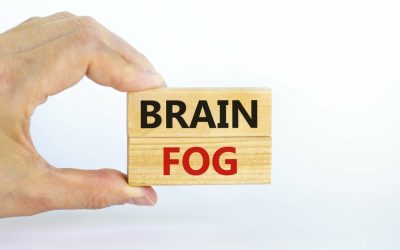Treatment may involve medications, cognitive behavioral therapy, support groups, or in some cases, hospitalization. It is important to remember that no two people are the same, so there needs to be a tailored approach to each individual’s needs. A co-occurring disorder is diagnosed when a person has a substance use disorder along with a mental health disorder. When someone has alcoholism and narcissistic personality disorder, they may be particularly vulnerable to the negative consequences of both.
As a result of self-centeredness and denial, alcoholics can behave in manipulative ways. Like narcissists, they may threaten harm to themselves or others if they don’t get what they want. They may pretend to be nice for a short while to get other people to leave them alone.
What treatment options are available for each condition?
Recovery requires taking responsibility for your actions and acknowledging the harm you may have caused others. Taking responsibility for your actions can be an uncomfortable and difficult process, but it is crucial to making amends and moving forward. Remember that you are not responsible for the narcissist’s behavior and that fixing them is not your job. Knowing the signs and symptoms of each condition can help you identify which one is at play. People with Alcohol Use Disorder (AUD), also known as alcoholism, can exhibit self-absorption and a desire for admiration, similar to those with Narcissistic Personality Disorder (NPD).
- According to a 2018 article, due to the common co-occurrence of personality disorders and AUD, it is important that substance misuse services screen for personality disorders and vice versa.
- People with AUD may be unable to reduce or stop drinking despite experiencing the negative effects of alcohol or a desire to quit.
- Another reason narcissists are likely to become alcoholics is their desire to fit in or stand out in social situations.
- Consider the similarities with the list we shared earlier on abusive personality disorder signs.
For instance, research has shown that genetic predispositions can place a person at risk of NPD. Childhood rejection or experiences like child abuse and neglect are also linked to NPD [2]. The combination of a self-obsessed narcissist who never considers your feeling and an alcoholic who blames their need to drink on you can quickly destroy the strongest bond. While not all alcoholics are narcissistic, and not all narcissists are alcoholics, there are some similarities between the two conditions. While these similarities exist, it’s important to note that alcoholism and narcissism are different conditions with unique characteristics. Both alcoholics and narcissists tend to view others as either enablers or potential threats.
Living With an Alcoholic Narcissist
It was estimated as recently as 2017, that approximately one in every eight adults in the United States meets the criteria for an alcohol use disorder. However, it is more likely that the alcoholic is trying to surround themselves with others that support these extreme drinking habits. Individuals with a NPD feel they can only be understood by special people.

Furthermore, as alcohol reduces inhibitions, it may exacerbate other narcissistic behaviors, such as heightened self-absorption, denial, delusions of grandeur, and destructive tendencies. Another reason narcissists are likely to become alcoholics is their desire to fit in or stand out in social situations. A dry drunk has stopped drinking but hasn’t yet dealt with the issues that caused their alcohol dependence. covert narcissism and alcoholism They have yet to confront the shame, guilt, or past trauma that drew them to alcohol in the first place, so are at risk of relapsing. In this article, I want to explore the relationship between narcissists and alcohol, examining why they drink and how alcohol affects their behavior. If you are an enabler in a narcissist’s life, it is important to recognize your role in the dynamic and take steps to change it.
Additional Facts About Alcoholism
Alcohol can temporarily alleviate the vulnerable narcissist’s feelings of inadequacy, giving them a false sense of confidence that negates their niggling self-doubt. Vulnerable narcissists, on the other hand, tend to be more realistic about alcohol-related problems, such as passing out or feeling sick, and more willing to discuss them. You’ve joined your colleagues for a drink after work, and as the night progresses, your narcissistic boss’s behavior becomes increasingly intolerable.
10 Ways Narcissists and Alcoholics Are Similar – Psychology Today
10 Ways Narcissists and Alcoholics Are Similar.
Posted: Thu, 24 Dec 2020 08:00:00 GMT [source]
There are no medications to treat NPD, but if you also experience depression or another mental health condition, a doctor may prescribe medications to treat the other condition. In the United States, the DSM-5-TR is used to diagnose both conditions. However, NPD includes other traits, such as needing constant praise and special treatment, reacting negatively to criticism, and manipulating others. People with NPD might be unwilling or unable to recognize others’ feelings and needs. Alcoholics and narcissists can also rapidly change moods and behavior. If you’ve dealt with a narcissist you know that one minute they can be charming and pleasant but then turn around and become threatening and attacking.
For instance, NPD and AUD both involve psychotherapy, but the formats for each can vary. For NPD, it may involve individual or group counseling using cognitive behavioral therapy, schema-focused therapy, and dialectical behavior therapy. For AUD, group approaches such as AA and other twelve-step addiction programs are common.


